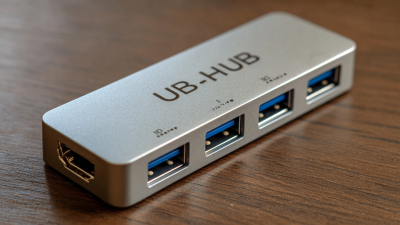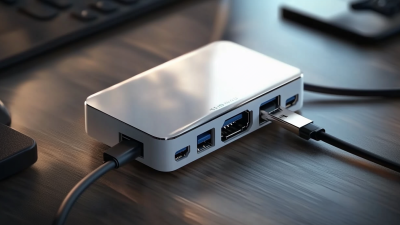
-
Home
-
Products
-
About Us
-
OEM&ODM
-
News
-
Contact Us
Inquiry
Form loading...

In today's fast-paced digital landscape, the demand for efficient and versatile connectivity solutions has surged, particularly with the growing adoption of Type C Charging Hub. According to a recent report by MarketsandMarkets, the global market for USB Type C devices is projected to reach $9.37 billion by 2025, reflecting an annual growth rate of 20.5%. This underscores the increasing importance of Type C technology in our everyday devices.
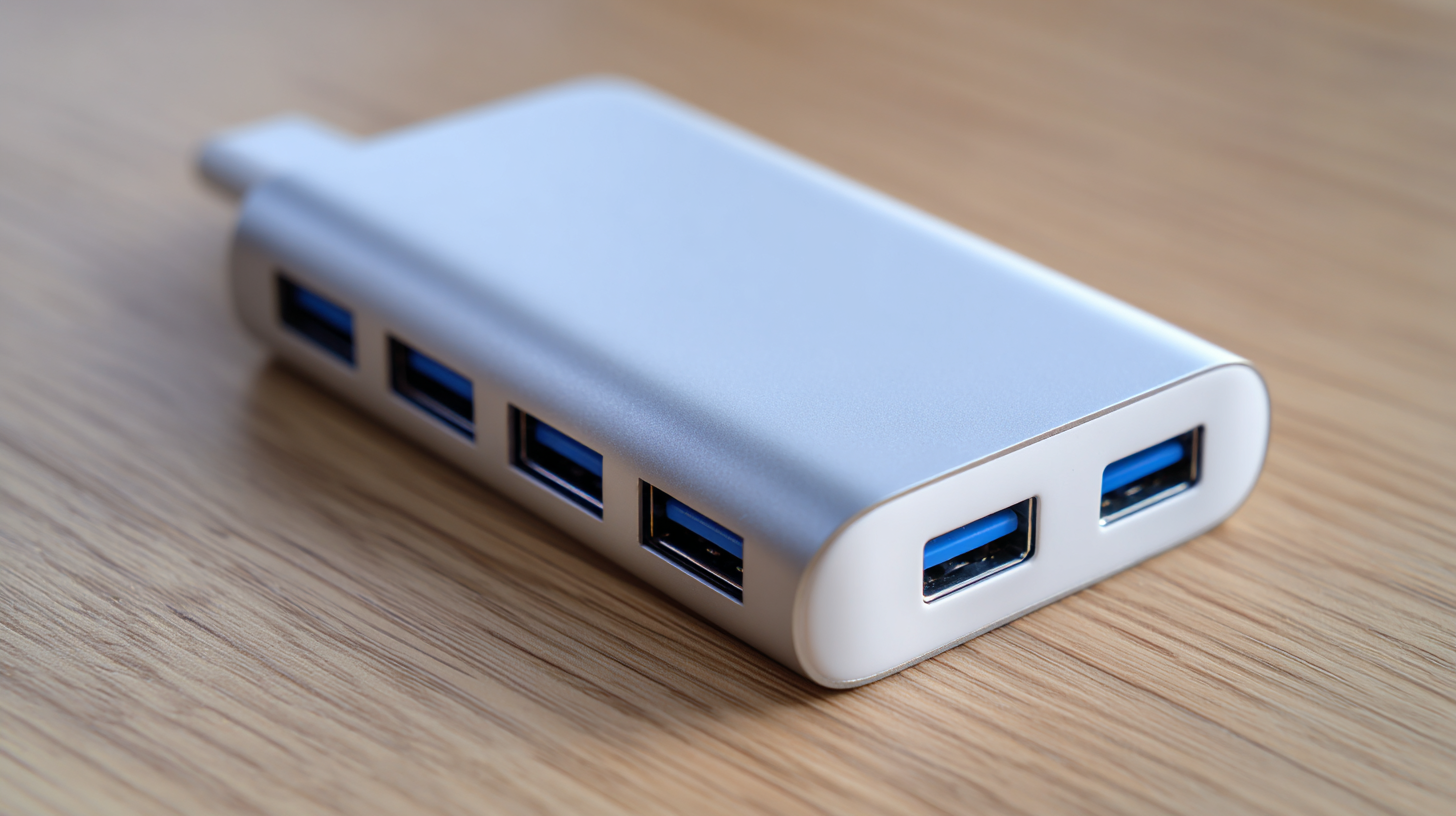 As professionals and tech enthusiasts seek to maximize their productivity, a reliable
Type C Charging Hub has become essential for managing multiple devices, enhancing data transfer speeds, and ensuring efficient power delivery. With various options available on the market, understanding how to choose the best Type C Charging Hub tailored to your specific needs is crucial for making informed purchasing decisions that align with personal and professional requirements.
As professionals and tech enthusiasts seek to maximize their productivity, a reliable
Type C Charging Hub has become essential for managing multiple devices, enhancing data transfer speeds, and ensuring efficient power delivery. With various options available on the market, understanding how to choose the best Type C Charging Hub tailored to your specific needs is crucial for making informed purchasing decisions that align with personal and professional requirements.
When selecting the best Type C charging hub, the first step is to understand your device compatibility. Different devices have varying power needs and supported protocols, making it crucial to check the specifications of your gadgets, such as laptops, smartphones, and tablets. For example, if you own a MacBook, you’ll need a hub that supports Power Delivery (PD) for efficient charging, while other devices may require specific charging outputs to ensure optimal performance.
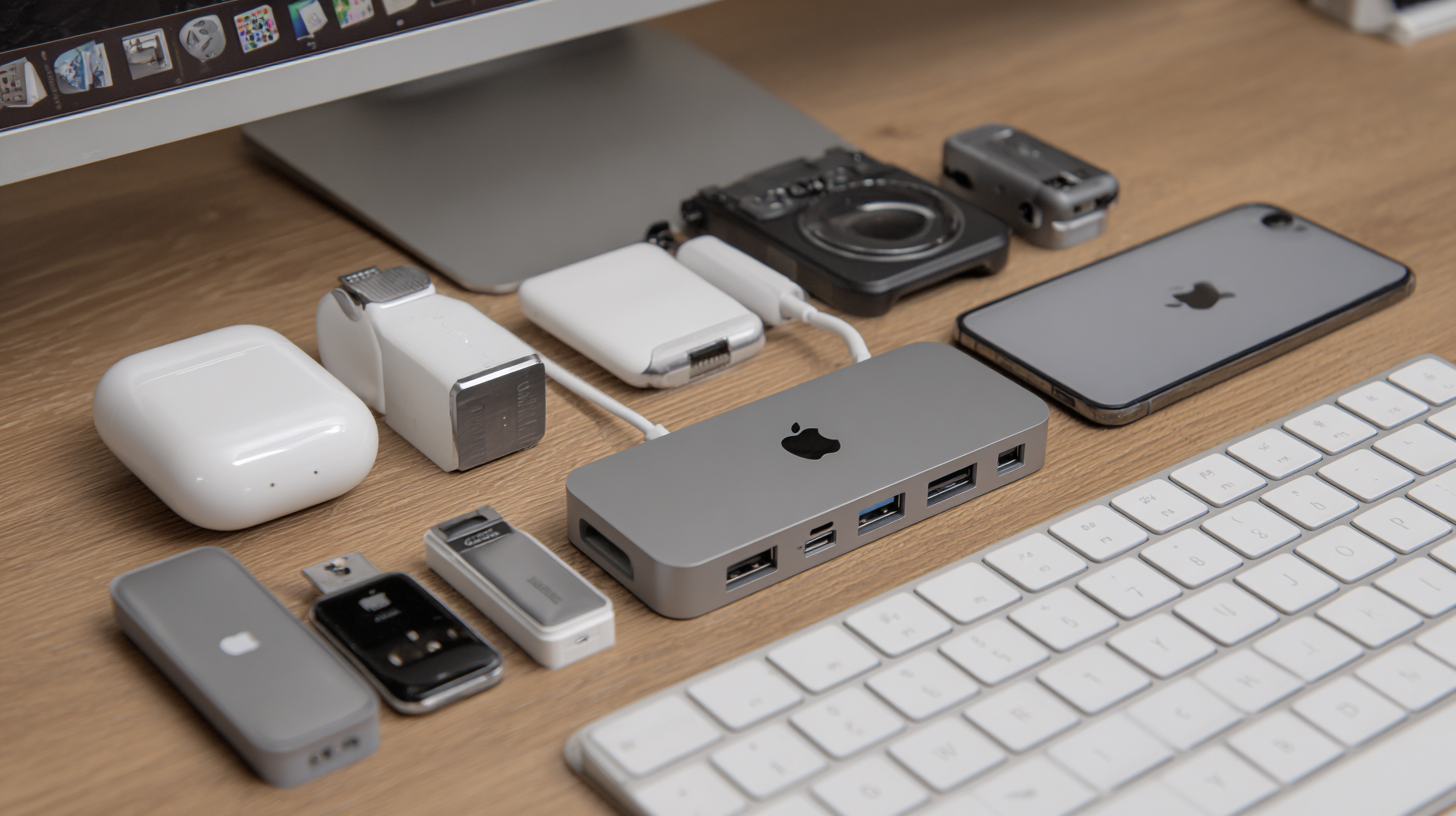
Next, consider the number of ports and their functionality. Most Type C hubs come with multiple ports, including HDMI, USB-A, and Ethernet. Make sure the hub you choose not only fits your device's needs but also offers the versatility required for your other peripherals. For instance, if you're a frequent traveler, a compact hub with essential ports can significantly enhance your productivity while on the go. Always check for compatibility with your devices to avoid any connectivity issues, ensuring that every gadget in your arsenal can be powered and connected seamlessly.
When selecting a Type C charging hub, several key features can significantly enhance your user experience. Firstly, consider the number of ports available. A good hub should provide multiple Type C and USB-A ports to accommodate various devices simultaneously. This versatility is crucial for those who often connect laptops, smartphones, tablets, and peripherals like external drives or keyboards. Additionally, look for hubs that support fast charging. Quick Charge or Power Delivery capabilities can ensure that your devices are powered up rapidly, saving you valuable time.
Another important feature is the hub's compatibility with different operating systems. A high-quality Type C charging hub should seamlessly work with Windows, macOS, and even Linux devices. Furthermore, pay attention to the data transfer speeds; a hub that supports USB 3.0 or higher will provide faster data transfer rates, which is essential for tasks such as backing up files or transferring large media. Lastly, consider the build quality and design of the hub. A compact and portable hub made from durable materials will not only make it easier to carry but will also withstand everyday use, ensuring longevity in your tech arsenal.
When selecting a Type C charging hub, understanding the nuances of Power Delivery (PD) and data transfer speeds is crucial. Power Delivery technology not only facilitates quicker charging for devices but also optimizes the energy transmitted across multiple ports. With PD, you can charge compatible devices faster than traditional USB methods, which is essential for users on the go or those who rely heavily on mobile devices throughout the day. When evaluating a hub, look for specifications that indicate high wattage output, as this ensures that your devices can receive maximum charging speed.
In addition to charging capabilities, don’t overlook the data transfer speeds of the hub. Most Type C hubs offer various USB standards like USB 3.0 or USB 3.1, which significantly impact the speed of file transfers. For instance, USB 3.1 can transfer data at rates up to 10 Gbps, while earlier versions are considerably slower. If you frequently transfer large files, such as videos or high-resolution images, opt for a hub with higher data transfer specifications. Balancing both Power Delivery and data transfer speeds will ensure you select a comprehensive hub that meets all your tech needs efficiently.
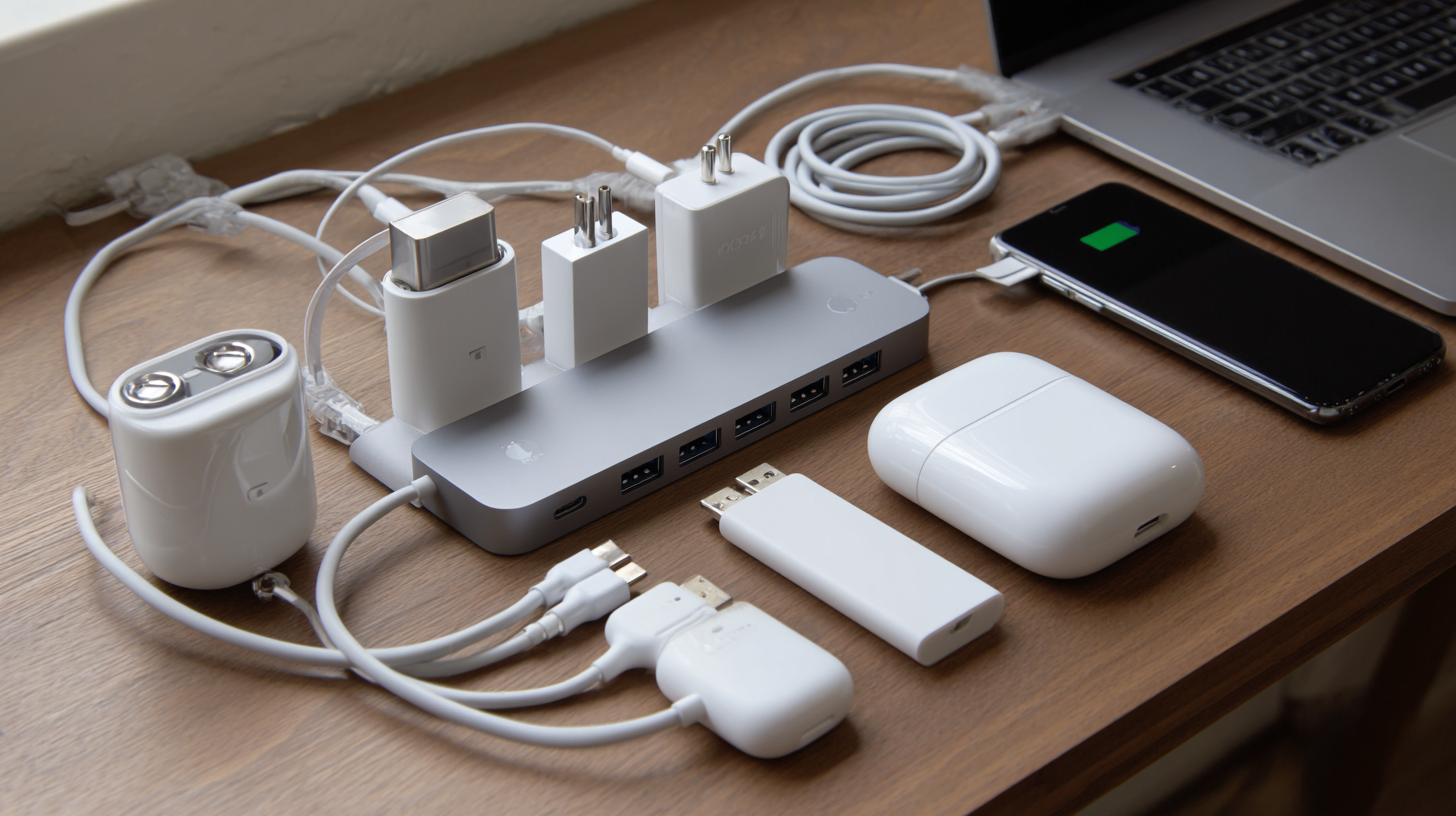
When choosing a Type C charging hub, understanding the right port configuration is crucial to meet your specific needs. Type C hubs usually come equipped with a variety of ports, such as USB-A, HDMI, Ethernet, and SD card slots. Consider the devices you regularly use and how a hub can facilitate seamless connectivity. For instance, if you frequently transfer files, look for hubs with multiple USB-A ports. If you're into photography or video editing, an SD card slot can be incredibly beneficial for quick data transfers.
Additionally, think about the charging capacities of different hubs. Some hubs may support Power Delivery (PD), allowing you to charge your laptop or tablet while using other devices simultaneously. This is especially important for those who are always on the go and need to maximize productivity without worrying about battery life. By evaluating the specific features and port types you require, you can select a Type C charging hub that not only powers your devices efficiently but also enhances your overall workflow.
When selecting a Type C charging hub, budget considerations play a crucial role in ensuring you get the best value for your money. The market is flooded with options ranging from budget-friendly models to high-end hubs packed with features. To find the right one that fits your wallet, start by assessing your specific needs: how many devices you typically charge, the required charging speed, and any additional functionalities such as data transfer or HDMI output. By clearly defining your requirements, you can narrow down your choices to those that offer the best performance without overspending.
Pricing typically varies based on the hub's features and build quality. Entry-level hubs may cost around $20 to $40, providing basic outputs for casual users. Mid-range options, priced between $50 and $100, usually offer faster charging and more versatile connectivity. High-end hubs, which can exceed $100, cater to power users needing extensive functionalities like higher wattage delivery and multiple data ports. Always look for sales or bundles, as these can provide significant savings. Investing a little time in research and price comparison will help you snag a Type C charging hub that aligns perfectly with both your needs and your budget.



